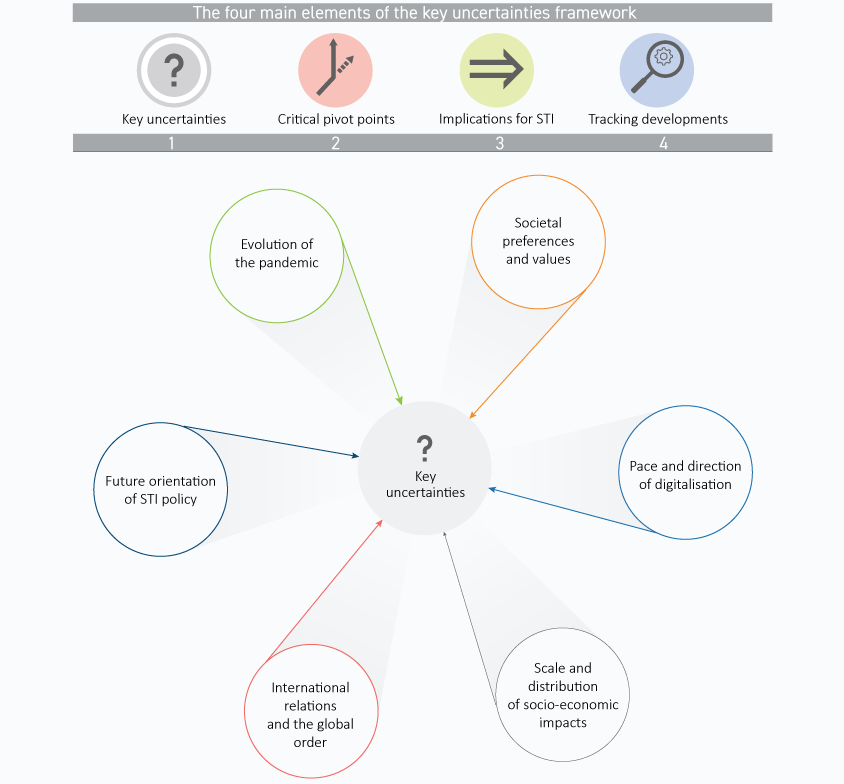Times of crisis and opportunity
Building government capabilities to meet future challenges will be a major challenge in itself
Developing public sector capabilities to deliver more ambitious STI policy will become an increasingly significant concern. For instance, increased policy emphasis on building resilience, which calls for policy agility, highlights the need for dynamic capabilities to adapt and learn in the face of rapidly changing environments. Governments will need to prepare more effectively for future shocks, assessing developments around key uncertainties and their implications for STI. It will be important to engage stakeholders and citizens in these efforts, in order to capture a diversity of knowledge and values.
Many key uncertainties will persist over the coming months and years, shaping the threats that research and innovation systems face, and the contributions they can make to solving societies’ grand challenges. Policymakers can benefit from using a structured framework to systematically monitor the evolution of the crisis and its impacts from an STI policy perspective (see figure). When combined with regular indicators-based monitoring, such a framework can operate as an early warning system that alerts policy makers (and others) to possible future developments. It also allows decision makers to identify alternative pathways and outcomes to pursue or avoid. Indeed, the shape of uncertainty is formed by choices, and in most cases, governments can choose to avoid some obviously bad options and to pursue more promising ones. The OECD STI Outlook provides evidence and analysis that aims to help policymakers when weighing their options in these times of crisis and opportunity.
The STI Outlook’s key uncertainties framework and its use to explore the post-COVID-19 STI policy landscape

- The STI policy mix needs to be more targeted
- Government R&D expenditures may need to shift to reflect new priorities
- Growing government debt could lead to austerity, and some hard choices for research and innovation policy
- Postgraduate training regimes need reforming to support a diversity of career paths
- Global challenges require global solutions
- Building government capabilities to meet future challenges will be a major challenge in itself
‹ Homepage
Related Documents
- Postgraduate training regimes need reforming to support a diversity of career paths
- Responses to the crisis have drawn upon the innovative potential of businesses
- The pandemic has triggered an unprecedented mobilisation of the scientific community
- Growing government debt could lead to austerity, and some hard choices for research and innovation policy
- Government R&D expenditures may need to shift to reflect new priorities
- Much of the research and innovation response to COVID-19 has been international
- Business research and innovation have been affected unevenly by the crisis
- Global challenges require global solutions
- Despite the disruption, scientists have continued their work during the crisis
- The STI policy mix needs to be more targeted
- Governments acted quickly to fund COVID-19-related research and innovation at scale